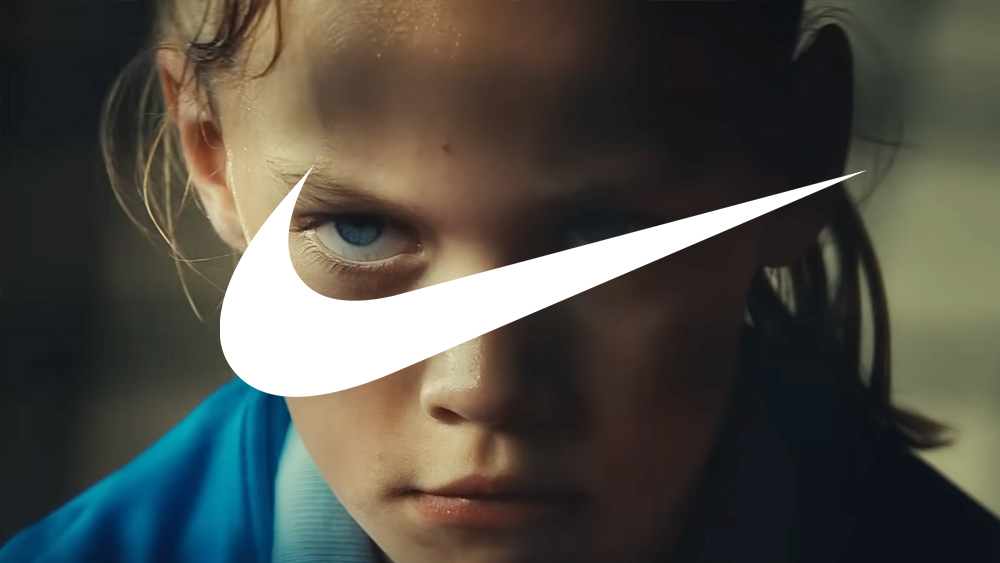Why sports branding needs more originality
An emotional connection with fans is as important as on-field performance.

Your team’s on-field performance might be what dominates headlines – but it’s not the only consideration for sports brands looking for long-term growth. Building an emotional connection with both fans and wider audiences is just as critical. Simply having one of the best sports logos isn't enough.
Commissioned by Conran Design Group, a new study titled Citizen Brands 2025: Solving the Connection Deficit looks at stakeholder expectations of sports brands today, as well as consumer perceptions of 170 cross-category brands in relation to key Citizen Brands attributes. What is a Citizen Brand? One that better connects to the people it sells to and the societies it operates within.
The study identifies a growing ‘connection deficit’– the widening gap between what consumers expect from brands and what they actually experience. In sport, this often manifests as a misstep between competitive success and emotional trust. Fans today want more than results: they want consistency, cultural identity, and values they can believe in.
With Citizen Brands, we’ve developed a framework that helps sports leaders connect to what matters for both the individual fan (reliability, betterment and originality) and wider society (inclusivity, environmentalism and contribution). This framework is proven to lead to higher purchase intent as well as stronger commercial growth: the top Citizen Brands generated up to 37% more revenue and saw 93% higher stock price growth over five years than their lower-performing counterparts.
In this year’s report, we looked at how brands like McLaren, the LA Lakers, Paris Saint-Germain, the All Blacks and Red Bull Racing stack up when it comes to activating Citizen Brand levers. It turns out it’s all to play for in sports.
Unlike brands in other categories, sports brands are underperforming on all Citizen Brand attributes. This leaves room for emerging category champions – brands able to connect and deliver at both individual and societal level, and drive growth in the process. So, what can sports brands do to strengthen these connections and drive business performance?
01. Double down on reliability and brand consistency
Of our six brand levers, ‘reliability’ is the top attribute driving commercial traction and positive sentiment. In this context, ‘reliability’ means more than smashing records or flying to the top of league tables: it’s about both dependable performance and the ability to consistently provide fan entertainment.
Daily design news, reviews, how-tos and more, as picked by the editors.
Take the LA Lakers: they might have only won one NBA title in the last 15 years, but through building assurance and visibility beyond performance, they outperform every other NBA team in terms of both brand valuation and social following.
Then you have the All Blacks: aside from their exceptional track record, they demonstrate reliability through one of the most consistent brand identities out there. For them, it’s about maintaining high standards on the pitch, but also ensuring the team’s values, visual identity and fan experience are reliably excellent year after year. This then keeps fans (and sponsors) invested for the long haul.
‘Betterment’, which is about improving the lives of your fans, both emotionally and functionally, was the second-highest lever driving consumer engagement for sports brands. The challenge isn’t just to engage fans for the duration of a match but to build an intimate relationship with them before, during and after. Fans now expect content and connection beyond the field of play; they want their team (or brand) to show up in unexpected ways to underline the value it offers.
Netflix’s Drive to Survive gave brands like Red Bull Racing and Ferrari the chance to go beyond the confines of the racetrack to drive engagement with fans (and create new fans along the way). Having dominated Formula 1 in recent years, Red Bull Racing are masters when it comes to dialling up ‘betterment’ during race weekends. From the VIP Paddock Club providing meet-and-greets and pit tours to festival-style fanzones with live DJs and interactive booths, they know how to entertain fans long after a podium finish.
Those looking to dial up ‘betterment’ should be thinking about designing a brand experience strategy that creates signature moments and content to enrich fan experience around the game or match itself.
02. Focus on originality to find your unique place in culture
‘Originality’ ranks as a critical driver of positive fan sentiment in sports. When a sports brand shows creativity, flair and authenticity in its branding, style or cultural collaborations, it can turn casual followers into devotees.
Being a fan (both diehard and more fair-weather) isn’t the same as being a consumer. As such, a sports brand's origin story, history, rituals, glorious highs and crushing lows – and its ability to say something different – are key to building audience connection. In addition, top-performing brands are able to reveal their unique cultural relevance in a broader sense.
Take Paris Saint-Germain (PSG), a brand that leverages a sense of originality to expand its off-field reach. In attaching the brand to the DNA of Paris and the world of fashion through brand partnerships with Michael Jordan (Nike), Dior and Koché and celebrity endorsements, it has become a true lifestyle beacon, capturing the attention of audiences inside and outside football.
03. The long-term payoff: loyalty, equity and growth
The sports brands that will dominate in the next decade aren’t just the ones with the silverware. They’re the ones that balance emotional connection with performance –- making the fans feel something deeper: emotional equity.
Leaders wanting a slice of the pie need to look at how to best leverage a sense of reliability, originality and betterment through their brand activations. The most successful will be those who look beyond the confines of the game to cultivate ‘fans’ rather than customers and ‘communities’ instead of audiences.

Anaïs Guillemané Mootoosamy is Strategy Managing Director at Conran Design Group.
You must confirm your public display name before commenting
Please logout and then login again, you will then be prompted to enter your display name.
